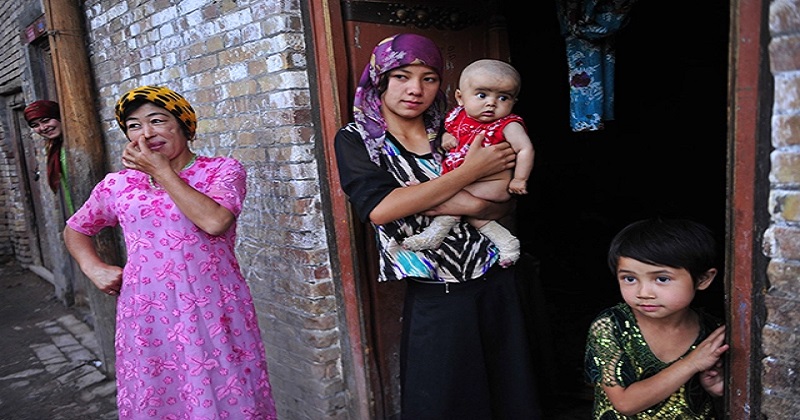
According to an Associated Press assessment of stolen data, nearly one in every 25 persons in a county in China’s Uyghur heartland has been sentenced to prison on terrorism-related charges, representing the world’s highest known incarceration rate. A list received and partially corroborated by the AP includes the names of almost 10,000 Uyghurs imprisoned in Konasheher county alone, one of several in southern Xinjiang. In recent years, China has undertaken a violent assault on the Uyghurs, a mostly Muslim minority, which it has termed a war on terror.
The list of imprisoned Uyghurs is by far the largest to emerge to date, illustrating the scale of a Chinese government effort that swept an estimated million individuals into detention camps and prisons. It also underscores what families and rights groups have been saying for years: China is using the legislation as a tool of repression to keep the Uyghurs in check. Under intense international pressure, Chinese officials announced in 2019 the closing of short-term, extrajudicial detention centers where Uyghurs were detained without trial. Despite the spotlight on the camps, thousands of Uyghurs are being imprisoned for years, if not decades, on trumped-up terrorist allegations, according to experts.
More than 267,000 people reside in Konasheher county, which is typical of rural southern Xinjiang. According to the list, jail terms ranged from two to 25 years, with an average of nine years. While the persons on the list were largely detained in 2017, according to Uyghurs in exile, their sentences are so long that the great majority would still be in prison. Men, women, children, and the elderly were among those swept up. They only had one thing in common: they were all Uyghurs.
Experts claim it plainly reveals that victims were targeted only because they were Uyghur, a conclusion that Chinese authorities adamantly deny. According to Xinjiang spokeswoman Elijan Anayat, penalties were carried out according to the law. The list was received by Xinjiang academic Gene Bunin from an anonymous source who identified themselves as part of China’s Han Chinese majority and ‘opposed to the Chinese government’s practices in Xinjiang’. Abduweli Ayup, an exiled Uyghur linguist in Norway, passed it on to the AP. The AP verified it through interviews with eight Uyghurs who recognised 194 people on the list, as well as legal notifications, recordings of phone interactions with Chinese officials, and address, birthday, and identification number checks.
The list excludes those facing standard criminal accusations such as manslaughter or theft. Rather, it concentrates on acts connected to terrorism, religious fanaticism, or vague allegations commonly used against political dissidents, such as ‘picking quarrels and inciting difficulties’. This indicates that the real number of individuals imprisoned is very definitely larger. According to Department of Justice data, Konasheher county’s incarceration rate is more than ten times that of the United States, one of the world’s major jailers. It’s also more than 30 times greater than in China overall, according to state data from 2013, the most recent time such information was provided.
According to Darren Byler, a specialist on Xinjiang’s mass prison system, most arrests is arbitrary and illegal, with people held for having relatives overseas or downloading specific mobile phone apps. ‘It’s just amazing,’ Byler added. ‘In no other region have entire groups of people been labeled or viewed as terrorists’. The crackdown intensified in 2017 following a series of knifings and bombings by a small group of Uyghur insurgents. The Chinese authorities justified the mass detentions as both legal and essential in the fight against terrorism.
In 2019, Xinjiang officials proclaimed the short-term detention camps ended, claiming that all ‘trainees’ had ‘graduated’. Four former camp locations visited by Associated Press journalists have been closed or repurposed into other institutions. However, the jails remain. Along with the crackdown, Xinjiang went into a prison-building frenzy, and even as the camps closed, the prisons increased. At least a few camp sites were transformed into prison facilities.
China is using the law ‘as a fig leaf of legitimacy,’ according to Jeremy Daum, a criminal law expert at Yale University’s Paul Tsai China Center. Experts think the secrecy of the allegations against those imprisoned is a red flag. Despite the fact that China makes legal records freely available everywhere, about 90% of criminal records in Xinjiang are not open to the public. According to the few that have emerged, people are being accused of ‘terrorism’ for behaviors such as advising coworkers against watching porn and cursing or praying in prison.
Adil Tursun, a well-liked teacher, was the only one at Toquzaq High School who could teach Uyghur pupils in Chinese. He was a Communist Party member, and his students always had the highest chemistry exam results in town. Tursun and the other names on the list made no sense to Ayup because they were regarded as ideal Uyghurs. ‘The allegations, fostering radical ideas, secession, these are preposterous,’ he stated.

Post Your Comments